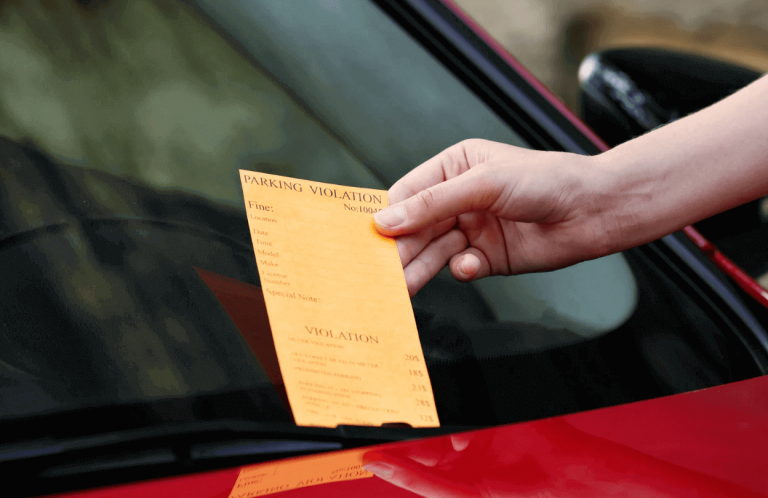Living Solo, Not Alone: How to Back Up Your Grandparents from Afar
This post contains affiliate links. Click here to read my affiliate policy.
Last Updated on August 6, 2025

When it comes to staying close to loved ones, distance can feel like a major hurdle—especially when it’s your grandparents. They’ve always been the steady force in your life, and now that they’re older and living independently, it’s only natural to want to make sure they’re safe and supported.
But what if you’re hundreds of miles away, juggling your own busy life? The good news: you don’t have to be physically present to be a solid support system. In fact, with the right mix of communication, tech tools, and smart planning, you can help your grandparents feel confident living solo—while also making sure they’re never truly alone.
One way families are bridging the gap is by using tools like GPS-enabled safety devices to stay quietly connected. Sites like the Life Assure official site offer discreet technology that supports aging in place without interrupting the independence seniors value so much.
Let’s explore a few simple, practical ways to show up for your grandparents—even when you can’t be there in person.
Photo by Kampus Production from Pexels
Check-Ins That Actually Work
It’s easy to say “just call more,” but let’s be real—life gets busy, and calling every day can feel like a lot (for both of you). That’s why it helps to create a rhythm for communication that fits your routines.
Schedule Weekly Catch-Ups
Pick a day and time that works for both of you and make it sacred. Whether it’s a Sunday coffee chat or a Thursday night call, consistency matters more than frequency.
Mix Up the Medium
Not every conversation has to be on the phone. A quick photo, a voice memo, or even a short video update can make your grandparents feel involved in your life without needing an hourlong catch-up.
Don’t Forget the Power of Handwritten Notes
Snail mail is a lost art that many grandparents still adore. A postcard, a holiday card, or a surprise letter can go a long way in making them feel remembered.
Share Responsibilities with the Whole Family
If you’re not the only grandchild or adult child in the picture, consider creating a low-key support network.
Set Up a Family Chat
Apps like WhatsApp, Signal, or even a shared Google Chat can become a place to swap updates, share funny moments, and coordinate visits or check-ins.
Create a “Who’s on What” Plan
It’s not about formal caregiving schedules—it’s just helpful to know who’s calling this week, who’s handling that prescription refill, or who’s planning a visit next month.
Having a light system in place avoids things falling through the cracks and reminds your grandparents that they’re cared for by a whole team.
Embrace Tech That Keeps Them Safe (Without Being Overbearing)
Some seniors are tech-curious. Others? Not so much. But there are plenty of tools out there that are so user-friendly they barely feel like tech at all.
GPS Trackers
Discreet and easy to wear, these devices are a game-changer for seniors who like their independence. If your grandparent goes for daily walks or lives alone, a GPS tracker with an emergency button can offer peace of mind without restricting their freedom.
Smart Pill Reminders
Forget complicated apps—simple pill dispensers with audible reminders can make medication routines more consistent and less stressful.
Fall Detection Devices
Wearable fall detectors now come in bracelet or pendant styles and alert emergency services automatically. These are especially helpful for seniors who prefer to avoid clunky gadgets or constant check-ins.
Help Them Build a Local Safety Net
Even if you can’t physically check on your grandparents, someone nearby probably can.
Encourage Social Interaction
Community centres, walking groups, or senior fitness classes can offer more than entertainment—they create bonds. These networks may be the first to notice if something’s off.
Meet Their Neighbours (Virtually)
Ask your grandparents if they’d be comfortable introducing you—via phone or video—to a friendly neighbour or two. That way, if anything happens, you have someone local to call.
Local Helpers List
Keep a shared digital note or printed list of nearby resources: their family doctor, preferred pharmacy, handyman, and emergency contacts. Bonus points if your grandparent has a printed copy on their fridge.
Make Emergency Plans Ahead of Time
No one loves talking about worst-case scenarios. But knowing there’s a plan makes everyone feel more secure.
Discuss Medical Preferences
Make sure your grandparent’s medical information, insurance details, and care wishes are up to date—and accessible to those who might need them.
Emergency Contacts
Does your grandparent know who to call if something goes wrong? Do you know who to call if they don’t answer the phone for two days? Make those contact trees now, not later.
Home Safety Checks
If you can, schedule a local visit (or arrange one with someone nearby) to do a walk-through: Are smoke detectors working? Are rugs secured? Is the bathroom easy to navigate? It’s about prevention, not paranoia.
Give Them Tools for Independence, Not Just Oversight
It’s easy to fall into the habit of only calling when you’re worried. But support doesn’t have to feel like surveillance.
Ask, Don’t Assume
Check in on what kind of help your grandparent actually wants. Maybe they’re totally fine living alone but could use help with online grocery orders or setting up their email.
Celebrate Their Wins
Did Grandma finally fix the Wi-Fi without asking you? Did Grandpa download a weather app by himself? Hype them up! These small wins reinforce their confidence and remind them they’re still sharp.
Offer Help Without Pressure
Sometimes the offer is the support. “Would it help if I handled your refill online?” is very different from “You didn’t order your meds again?”
Blend Routine with Freedom
One of the most effective ways to support an independent senior is by building gentle routines that don’t feel like obligations.
Create Low-Stress Habits
Maybe you send them a “good morning” text every Saturday, or they send you a weekly weather report. These aren’t chores—they’re anchors that create a sense of connection and care.
Encourage Self-Tracking
Introduce fun, low-effort tools like daily hydration apps, step counters, or gratitude journals. If they’re into it, these can help your grandparents stay engaged with their own wellbeing—without needing constant oversight from family.
Bonus: Long-Distance Bonding Ideas
Want to connect more with your grandparents from afar without making every interaction about safety?
- Watch a TV show “together”: Pick the same series and text each other reactions.
- Share a digital recipe book: You cook their dish, they try yours.
- Send voice notes: They’re easier than typing and way more personal.
- Play games: Many seniors love simple tablet games like Scrabble or Words With Friends.
These kinds of shared experiences make the relationship feel reciprocal—not just one-sided caregiving.
Photo by Jsme MILA from Pexels
Final Thoughts
You don’t need to be a live-in caretaker to support your grandparents living independently. With thoughtful check-ins, user-friendly tech, and a little teamwork, you can help them feel safe, seen, and supported—even from afar.
The key is finding the balance between being involved and being overbearing. Start small, keep it consistent, and trust that even your simplest gestures—like a midday call or setting up a GPS device—can make a big impact.
Because living solo doesn’t have to mean living alone.




